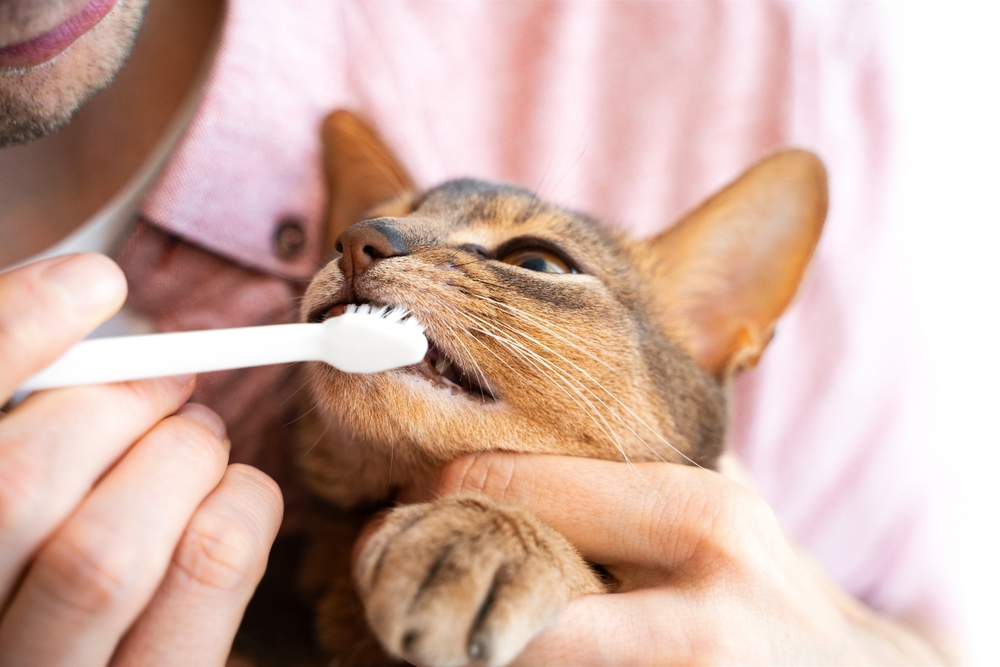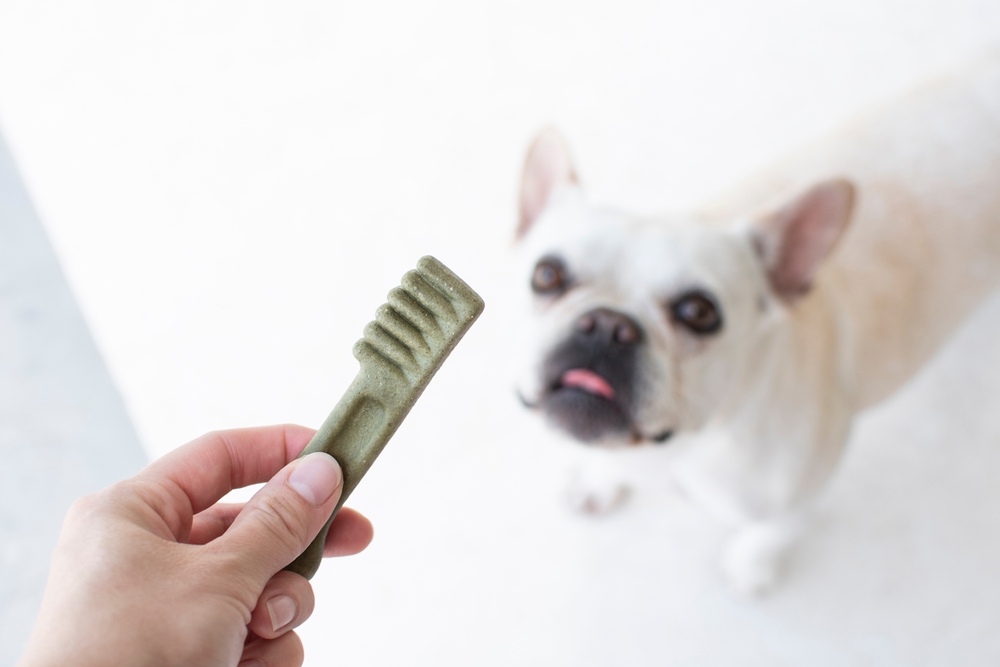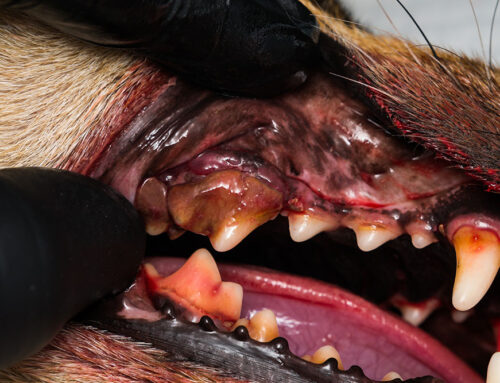Oral health is an often overlooked, yet crucial, aspect of your four-legged friend’s overall wellbeing. Without regular dental care, your pet can suffer from painful periodontal problems or systemic infection and disease. Because dental disease can become severe, you must be proactive regarding your pet’s oral health, and one effective method is to incorporate safe dental chews into their routine.
Before clearing the pet store shelves of dental chews in hopes of freshening your furry pal’s breath, learn what to look for in an ideal dental chew, and what you should avoid. Our North Bay Veterinary Dentistry team shares tips on how to find safe dental chews for your pet and explains other ways you can care for their oral health at home.
What to look for in dental chews for pets
As you search through countless online pages touting dental chews, you notice that they all seem to claim to be the best. Before spending a fortune on products that may ultimately affect your pet’s oral health negatively, determine which oral health items are most appropriate for your pet. When perusing dental chews online, consider the following key factors:
- Texture and design — Opt for dental chews with a textured surface, such as ridges or nubs, as they can help remove plaque and tartar more effectively. Also, look for designs that promote extended chewing, as this action stimulates saliva production. Saliva contains natural enzymes that aid in breaking down bacteria and maintaining oral health.
- Natural ingredients — Choose dental chews made from natural ingredients such as wholesome grains and proteins. Avoid those that include excess fillers, artificial colors, and preservatives. Ingredients, such as chlorhexidine, certain enzymes, delmopinol, parsley, and mint, can provide additional benefits, contributing to fresher breath and enhanced oral hygiene.
- Size and shape — Select dental chews appropriate for your pet’s body size and breed. Chews that are too small may pose a choking hazard, while those that are too large may be challenging for your pet to handle. Unique shapes can also be more appealing to your pet, as different designs cater to a variety of chewing habits and preferences. For example, some pets may prefer a bone-shaped chew, while others may enjoy a twisted stick or ring.
- Veterinary Oral Health Council (VOHC) approval — Look for dental chews with the VOHC seal of acceptance, ensuring they meet specific efficacy standards. Products that bear the VOHC seal have been proven to slow plaque and tartar accumulation, thereby preventing dental disease.
What to avoid in dental chews for pets
With so many dental chews available, certain characteristics are red flags. When looking at oral health products for your pet, avoid the following:
- Artificial additives — Steer clear of dental chews containing artificial colors, flavors, or preservatives, as these can lead to allergies or digestive issues. Read the ingredient list carefully, and opt for products with minimal, recognizable ingredients.
- Excessive hardness — Avoid dental chews that are excessively hard, as they can potentially cause tooth fractures or damage. Look for options that strike a balance between durability and chewability. You should be able to slightly flex the chew or leave a fingernail imprint.
- High caloric content — Be mindful of the calorie content in dental chews, especially if your pet is prone to weight gain. Choose low-calorie options and consider adjusting your pet’s daily food intake to accommodate the additional calories from dental treats, ensuring they don’t exceed their recommended daily caloric intake.
Optimal at-home oral health care for pets

Dental chews are just one pillar of at-home oral health care for pets. Other routines that support a pet’s healthy mouth include:
- Regular toothbrushing — Establish a positive routine for brushing your pet’s teeth, and ensure you are using a pet-friendly toothbrush and toothpaste. Begin slowly, allowing your pet to get used to the process, and gradually increase the duration, aiming to brush their teeth daily. Use rewards and positive reinforcement to make brushing a pleasant experience for your furry pal.
- A healthy diet — Provide a balanced and nutritious diet to support overall health, and consider a food specifically formulated to improve dental health.
- Appropriate chew toys — Offer appropriate chew toys made from safe materials to help reduce plaque and tartar buildup. Ensure these toys are durable and suitable for your pet’s size and chewing preferences, and rotate the toys regularly to prevent boredom.
- VOHC-approved products — Food and water additives, oral wipes and sealants, and dental treats and diets approved by the VOHC can round out your pet’s oral health care program.
By carefully selecting safe dental chews, being mindful of potential pitfalls, and incorporating additional home-care practices, you proactively contribute to your pet’s oral health. Remember that every pet is unique, and you should tailor your approach to their individual needs. Regular professional veterinary checkups will further ensure that your furry friend maintains a radiant smile, promoting a lifetime of happiness and wellbeing.
Choosing dental chews most suited for your pet’s specific health and chewing needs can be a challenge, but our North Bay Veterinary Dentistry team is here to help. Discuss which chews will work best for your pet with your primary care veterinarian, or give our team a call.





Leave A Comment